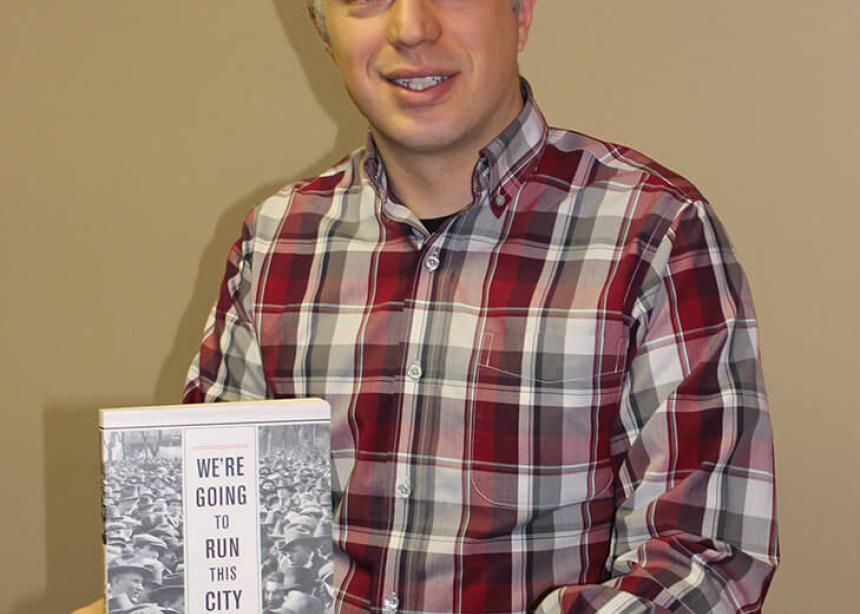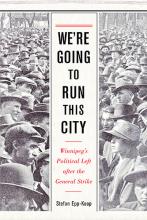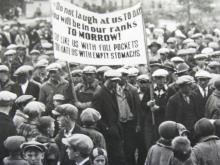“Why couldn’t I have been more interested in Caribbean history?”
That’s what historian Stefan Epp-Koop asked himself during a December 2007 visit to Winnipeg, as he trudged through a deep layer of fresh snow in -30 C weather to the City of Winnipeg Archives.
Epp-Koop was visiting the archives to research Winnipeg in the 1920s and ’30s. The research was for a major project Epp-Koop worked on while studying history as a master’s student at Queen’s University in Kingston, Ont.
Raised in Camrose, Alta., Epp-Koop had moved to Winnipeg for his undergraduate studies. He first studied the city’s history while completing his bachelor of arts degree at the University of Winnipeg. Sensing that he wanted to move back to Winnipeg and call it home after his grad studies, he wanted to get to know the city better.
“Learning about the past of Winnipeg was a way to understand [the city] in a different way,” the 31-year-old says.
Epp-Koop’s research eventually turned into a book. Last September, University of Manitoba Press published We’re Going to Run This City: Winnipeg’s Political Left after the General Strike. The book explores the dynamic political movement that came out of the Winnipeg General Strike of 1919, the largest labour protest in Canadian history, and the ramifications for Winnipeg in the two decades that followed.
“There’s been a lot of attention paid to the strike, and what it meant and who the sides were,” Epp-Koop says. “But really, what fascinated me when the strike was over is that the city was just as divided as it had been [before].”
Those economic and political divisions would reverberate in the city for decades to come, says Epp-Koop, who attends Home Street Mennonite Church and has a full-time job running a local food advocacy group called Food Matters Manitoba. He worked on the book on and off for a decade, his research taking him from the reading rooms of Library and Archives Canada in Ottawa to a crowded closet on the second floor of the Community Party’s offices on Selkirk Avenue in Winnipeg’s North End.
The best part of working on the book is that it allowed Epp-Koop to get to know the people he was researching, as he explored spy files from the RCMP, mainstream and labour newspapers, detailed reports from Winnipeg to the Communist International in Moscow, memoirs, oral histories, letters, advertisements and more.
“There are so many records from that time,” he says. “You really get a sense of who these people were. It was very interesting to try to understand them as people and where they were coming from.”
His favourite historical figure in the book is John Queen, who was jailed in 1919 for his role in the General Strike and by 1935 became the mayor of Winnipeg. “He ended up leaving quite a remarkable legacy, even though he was so despised by some [people] in the city 15 years earlier,” Epp-Koop says.
While he did not always agree with what the people he researched did and said, Epp-Koop says he came to admire their desire to make Winnipeg a better place for the city’s marginalized, working-class citizens. “A lot of the people I studied wouldn’t consider themselves Christian, but I think I was really interested in what they were doing to create a more compassionate, caring society,” Epp-Koop says.
For Epp-Koop, studying history is a way of understanding why things are they way they are today. “There’s so much we can learn about who we are as people, whether that’s as a church or a city or a country, and we can draw lessons from that history,” he says. “If we are blind to where we come from, we aren’t rooted in anything, and we don’t learn those lessons from people who have come before.”
After all of the work that went into We’re Going to Run This City, Epp-Koop is happy to see the book on shelves.
His involvement with Food Matters Manitoba and his family life—he and his wife have a nine-month-old son—keep Epp-Koop busy. He is open to writing another book—just not right away. “I can definitely imagine doing [it] again,” he says, “but maybe not for a while.”

Stefan Epp-Koop is the author of We're Going to Run This City: Winnipeg's Political Left after the General Strike. (Photo by Aaron Epp)





Add new comment
Canadian Mennonite invites comments and encourages constructive discussion about our content. Actual full names (first and last) are required. Comments are moderated and may be edited. They will not appear online until approved and will be posted during business hours. Some comments may be reproduced in print.